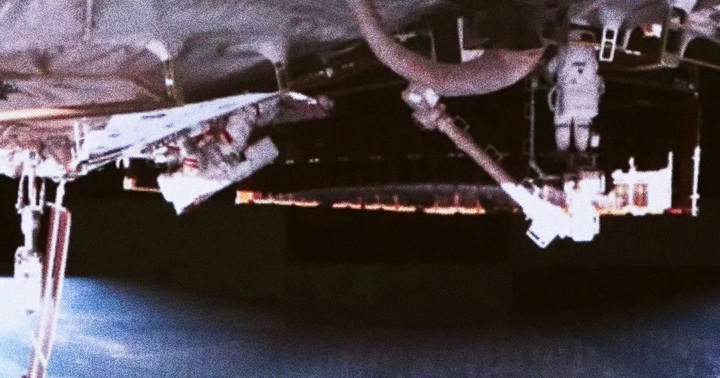
Repairs, Not Despairs
Last month, astronauts aboard China’s Tiangong space station conducted a lengthy spacewalk to repair a solar array damaged by debris.
Now, state media outlet Xinhua reports that those repairs were successful, as China takes steps to protect its astronauts against the threats posed by an increasingly cluttered orbit.
According to the China Manned Space Agency (CMSA), the debris had struck the solar array’s power cables, leaving the station with a partial loss in power. Members of the Shenzhou 17 mission then conducted two nearly eight-hour spacewalks, one in December and the latest in early March, to repair the module with the help of a robotic arm.
“The repair work highlighted the role of a manned spacecraft in coping with unintended problems in orbit,” CMSA deputy director Lin Xiqiang said at a press conference, as paraphrased by Xinhua.
It’s unclear if the debris was man-made or a natural micrometeoroid. But if it’s any clue, Lin said that “preventive measures were taken to mitigate hazards stemming from the growing human activities in space in recent years,” per Xinhua.
Duck and Weave
Debris impacts aren’t uncommon. The International Space Station, to use an example, routinely conducts maneuvers to dodge dangerous junk. Up in orbit, where objects can travel as fast as 18,000 miles per hour, even the impact of a tiny particle could inflict significant damage.
Scientists agree that it’s a problem that’s only going to get worse as humanity ramps up its space missions, filling up an already cluttered orbital sea of junk.
China, for its part, already has the capability to “precisely forecast the orbits of the space station and small low-orbit targets,” according to Lin.
But you can’t predict everything. And so the incoming Shenzhou-18 crew, who just launched on Thursday morning from the Jiuquan Satellite Launch Center in northwest China, will be charged with installing “space debris protection reinforcements” around the station as an added safety measure. There’s also plans to use video footage captured by cameras held by the astronauts during spacewalks and by a camera on the space station’s robotic arm to assist in the analysis of potential impacts.
Luckily for everyone involved, this turned out to be a pretty minor incident. Some in the past, though, have been far too close for comfort. There are early efforts at cleaning up our orbit, but these are likely years away from having a large scale impact.
More on space junk: Man’s Attorney Contacts NASA After Space Station Debris Smashes Through His House